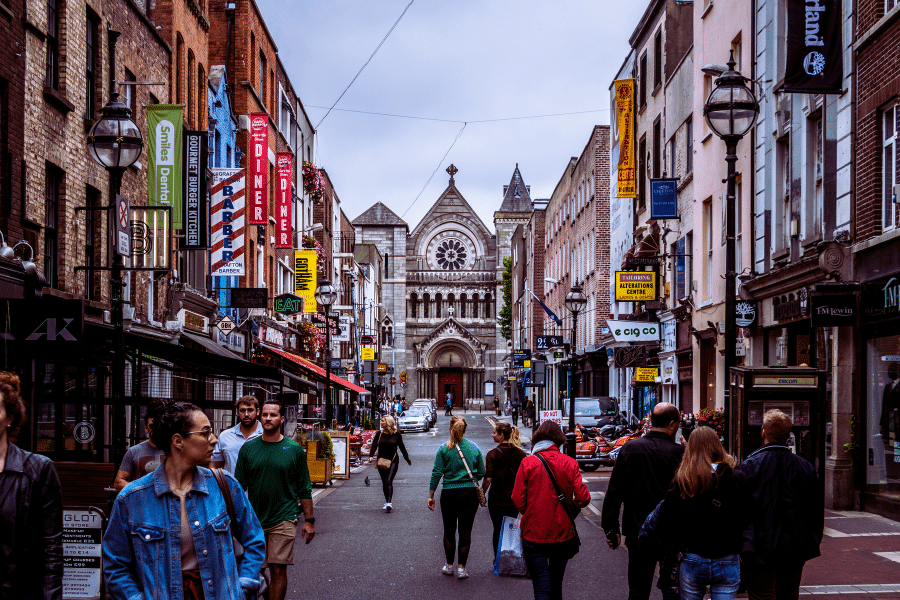Moving to a new country is an exhilarating experience. Most newcomers view their new surroundings through “rose-colored glasses,” feeling like they are “falling in love” with the place and that they are “living the dream.”
Exploring local monuments, enjoying freshly baked pastries and savoring locally grown fruits all make the initial days incredibly exciting. This joyful period, known as the honeymoon phase, typically lasts a couple of months.
Once the initial thrill fades, anxiety and homesickness may creep in, revealing unexpected challenges in creating a new home. It is important that these feelings are recognized as a transitional phase. If handled properly, they give way to a more settled feeling that embraces life in the new country.
What Is the Honeymoon Phase?
The honeymoon phase refers to a period of excitement that accompanies new milestones in life, such as starting a new job, entering a relationship, or relocating abroad. During this time, everything feels fresh and positive, with any potential flaws overlooked. It’s a phase marked by high energy and enthusiasm, driving individuals to immerse themselves in the local culture, learn the language, and forge new connections.

Characteristics of the Honeymoon Phase
Moving to a new country is often the result of extensive planning, and the first few months are characterized by certain emotions:
- Excitement and Curiosity
After months of research and preparation, arriving in your new destination is thrilling. Every experience feels exhilarating, from trying new foods to meeting local people. The curiosity to explore a different culture makes every café visit an opportunity for great people-watching and the chance to learn more about your new homeland.
- Sense of Adventure
Relocating awakens the explorer within us and even mundane tasks, like grocery shopping, become an adventure. Each new discovery feels like a small victory.
- Optimism and Idealization
In the early days, there a strong sense of optimism. Challenges, such as learning a new language or tackling the local tax system seem minor compared to the beauty and friendliness of the new environment. It is hard to imagine at this stage, the frustrations that could lie ahead at not being able to make yourself understood in everyday situations or not being able to buy your favorite products from home.
How Long Does the Honeymoon Phase Last?
The duration of the honeymoon phase varies for each individual. Factors such as family ties, previous travel experience, and personal adaptability all play a role. Generally, this phase lasts a few months.
What are the Signs It Is Ending?
After a month or two, the initial delight can begin to fade. Everyday tasks may become frustrating and cultural differences more pronounced. Some expats find themselves questioning their decision to move, as challenges they thought they left behind resurface.

Transitioning Out of the Honeymoon Phase
As excitement fades, reality sets in, often accompanied by culture shock. Feelings of homesickness, confusion, and frustration may emerge as the challenges of daily life abroad become apparent. Routine tasks can feel daunting, and navigating local bureaucracy may be frustrating.
It is important to have good coping skills to help with culture shock during this transitional period as the many challenges may – or may not – include sadness and loneliness., a lack of community support, cultural differences and changes to routine.
These must be overcome so they do not impact long term satisfaction and success. It is not unusual for those who have newly arrived in a new country to suffer physically from headaches, allergies and insomnia and some become over-concerned about their health. Others feel shy, insecure, lost and confused or try too hard to immerse themselves in the new culture.
Coping with this transitional period can be really helped by meeting other expats – details on local expat clubs can usually be found online. Join a local sports club can help, as can signing up for language classes.
The latter has the bonuses of helping you learn how to communicate with local people and the chance to meet other expats too. Some people find that keeping a journal can be therapeutic too. Soon the frustrations will ease as you become familiar with your new environment, the lifestyle and the language and you begin to make new friends.
Why the Honeymoon Phase Is Important
The honeymoon phase is a vital period in any new experience, as it boosts your confidence by allowing you to explore your surroundings without the burden of immediate worries.
This initial sense of adventure encourages you to embrace new challenges with enthusiasm and the many happy moments during this phase will create positive memories which help navigate more challenging phases in the future.
These memories lay strong foundations that will prove both motivating and comforting when future difficulties emerge. They serve as a good reminder of the excitement and promise that first drew you to the new country.

What To Do When the Honeymoon Phase Ends
It’s vital to set realistic expectations before relocating. Understand that the honeymoon phase is temporary, and prepare yourself for the transition. Establishing a routine early on and seeking support can significantly ease this adjustment process.
Even when the early days are proving tough, it is important to maintain a positive outlook and to focus on the future when you will start to reap the many benefits of living abroad.
In summary, the honeymoon phase of living abroad is one of excitement, newfound confidence and the creation of new and positive memories. However, this phase is temporary and transitions into normal reality. This is achieved through positively accepting challenges and making adjustments in the early days in your new home.
Watch this space for our next article. We explore culture shock in greater depth and provide valuable strategies for navigating this essential part of the journey.

